

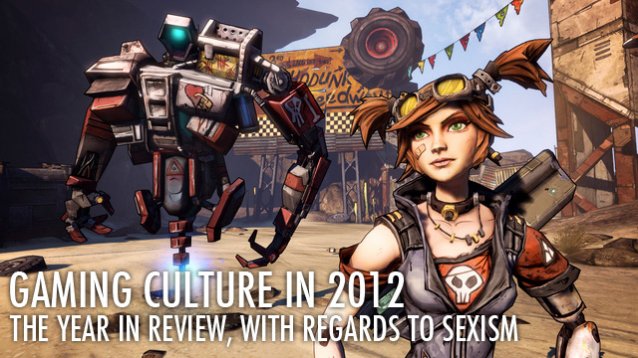
2012 has been a year rife with controversy, topping even the mess of last year’s debacle with Penny Arcade and their ‘Dickwolves’ comic. Among the myriad of issues throughout the year, the one thing that kept cropping up again and again was the issue of sexism in the gaming industry.
No stranger to controversy, the year began—once again—with the aforementioned Penny Arcade as they lobbed the equivalent of a molotov cocktail at an individual named Paul Christoforo and his Ocean Marketing venture. Christoforo was brought to the attention of the webcomic creators when a reader of theirs included the duo in a discussion he was having with the customer service rep of a gaming peripheral called the Avenger Controller. Speaking on behalf of Avenger, Christoforo bullied the guy and spent much of his e-mail responses namedropping people more important than himself. Tired of his shenanigans, Penny Arcade called him out on his behavior and publicly humiliated him on the front page of their website. It was an ugly start to the year. It was, however, a year of introspection.
Not too long after the debacle with Christoforo, BioWare released the demo for Mass Effect 3. The demo wasn’t well received by the gaming public, and several communities across the web sought an individual to blame for what they regarded as the game’s shortcomings. Jennifer Hepler, a writer at BioWare who previously worked on Dragon Age 2 as one of its character designers, was blamed for every perceived issue with Mass Effect 3.
The attacks only escalated after the game’s release, when the issue was exacerbated with the fans’ unhappiness with the game’s ending. Referred to as “the cancer that is killing BioWare”, Hepler was soon driven off Twitter and other employees at the company who leapt to her defense found themselves the targets of an organized hate campaign. Mass Effect 3’s publisher, EA, was named the worst company of 2012 at a Consumerist poll, and every single one of their efforts was maligned, including the publisher’s support for LGBT rights.
The same movement would later target feminist speaker Anita Sarkeesian for efforts to point out sexism in videogames. Sarkeesian, the creator of a series of documentaries on YouTube under her “Feminist Frequency” channel, entered the ugly limelight when she launched a small campaign on Kickstarter to fund a series of videos documenting female character tropes in videogames.
Instead of greeting Sarkeesian's worthwhile attempt to examine games with open arms, many gamers chose instead to take offense to her efforts and cast her as a demon who had set out to ruin the things they loved. Videogames are, evidently, above criticism.
Her attackers attempted to shut Sarkeesian up by hacking into her online accounts, defacing her Wikipedia page, and in one particular instance, a flash game called “Beat Up Anita Sarkeesian” was made to bully her into silence through threats of physical violence. Steph Guthrie, who stood up in defense of Sarkeesian was similarly targeted with threats of violence and even rape.
The attacks accomplished the very opposite of what Sarkeesian’s critics had intended when much of the internet responded in support of her, and poured donations into the creation of her documentary. They were mad about that, too.
When E3 2012 rolled around, the inherent sexism of the gaming industry once again reared its ugly head as an orgy of sex and violence was put on display at the trade show. The venue was criticized not just by the gaming public—which had begun to tire of the constant pandering to a swiftly shrinking demographic of adolescent male gamers—but by game developers tired of the lack of professionalism and the noninclusive environment perpetuated by the industry’s hosts at E3.
In particular, veteran game developer Brenda Brathwaite pointed out that the presence of booth babes felt alienating to women in the industry. Equally crucial was Katie Williams’ personal experience at E3, where she was treated not as a professional journalist, but a girl in a skirt who couldn’t even be trusted to handle a controller.
The parade of sexist bullshit continued with the revelation that the upcoming Tomb Raider game was set to feature an apparent sexual assault attempt on Lara Croft. While the allegation was later proven false, the depiction of Lara as a victim of sexual violence raised questions about the depiction of women in videogames. This created a frenzy of discussion, which may yet yield positive results in the years to come.
Not having learned the value of keeping one’s mouth shut, or at least learning the value of phrasing things properly, a Gearbox developer referred to one of Borderlands 2‘s character skill trees as “girlfriend mode”, in reference to a set of skills designed for newbies. While the implementation of the skills was certainly laudable, as it made Borderlands 2 accessible to newcomers of the series, the “girlfriend mode” reference appeared to demean the capabilities of women who play videogames. Thankfully, the developer didn’t drag the issue out and promptly apologized. Still, the issue highlighted how women are perceived by the gaming community, and even by game developers. It’s a bias that has yet to be fully countered.
In relation to the perception of “fake geek girls”, the “idiot nerd girl” meme was equally brought to task, and reclaimed by Dark Horse Comics editor Rachel Edidin, who repurposed it to criticize male geeks who shamed women for their interest in geek culture.
All of the issues on sexism that permeated throughout the year came to a head with the controversy about “fake geek girls”, when comic book artist Tony Harris expressed his displeasure at women who attend gaming and comic book conventions, whom he perceived as faking their geek credentials. While his bleak outlook on women is nothing alien to the geek culture, it proved to be the straw that broke the camel’s back. Men and women alike responded in anger over his comments about “fake geek girls”, pointing out how women with geeky interests often had to prove their cred before being accepted by other geeks.
It wasn’t too long after his rant that Twitter was set afire with the #1reasonwhy hashtag, which appeared when a game developer responded to a question about why there weren’t more women in the game industry. The hashtag exposed sexism not only in the gaming industry, but also in comics and every corner of the tech industry.
Moving towards 2013, it remains to be seen whether the future will bring some much needed change to the treatment of women in the games industry, and to how women in general are treated by the gaming community. If gaming is to be an inclusive hobby and a respected artistic medium, it’d best open its doors to the other fifty percent of the population.



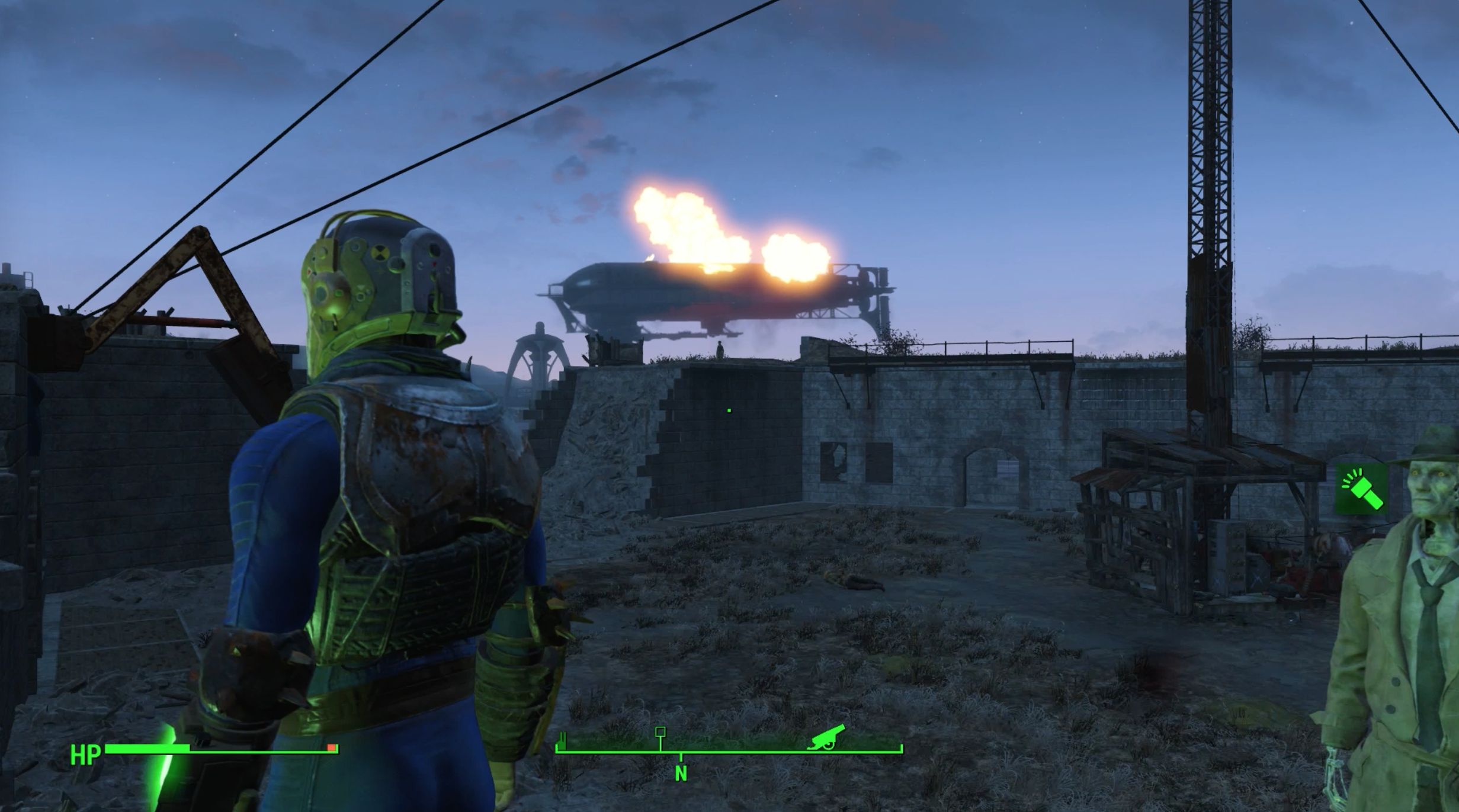
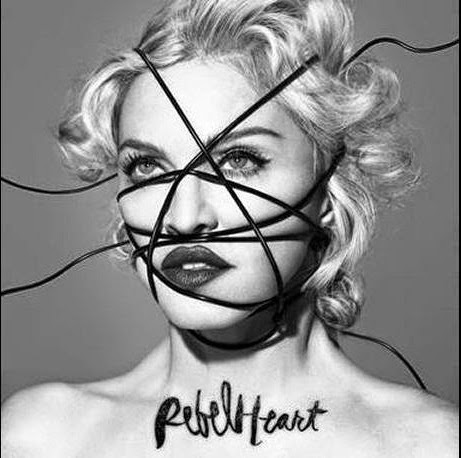 Madonna releases her new album Rebel Heart
Madonna releases her new album Rebel Heart Enrique Iglesias almost crashes in Egypt
Enrique Iglesias almost crashes in Egypt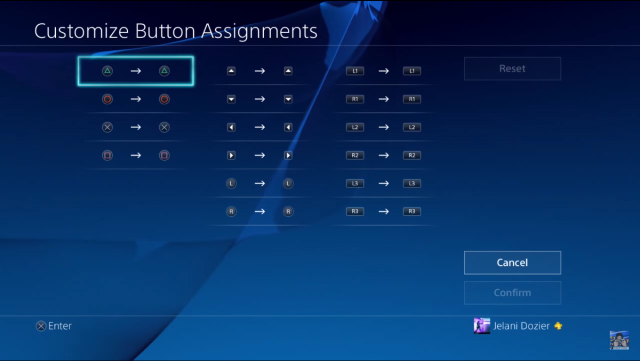 How to Remap Buttons on Your PS4 for Improved Control
How to Remap Buttons on Your PS4 for Improved Control 5 Windows 10 Registry Tweaks to Improve & Unlock Features
5 Windows 10 Registry Tweaks to Improve & Unlock Features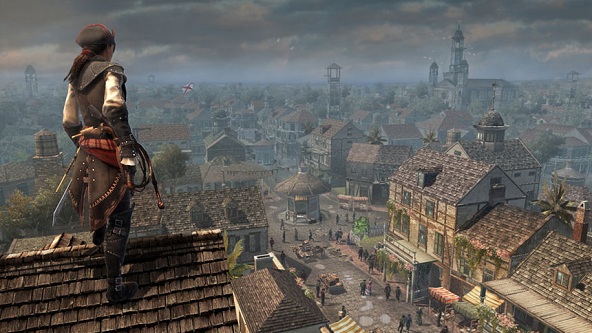 Assassin’s Creed 3: Liberation Walkthrough
Assassin’s Creed 3: Liberation Walkthrough